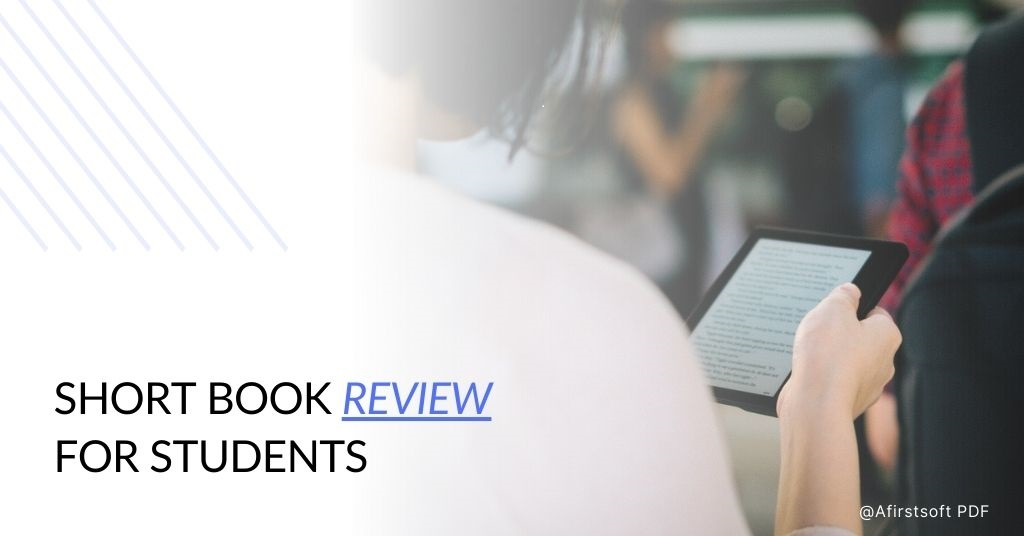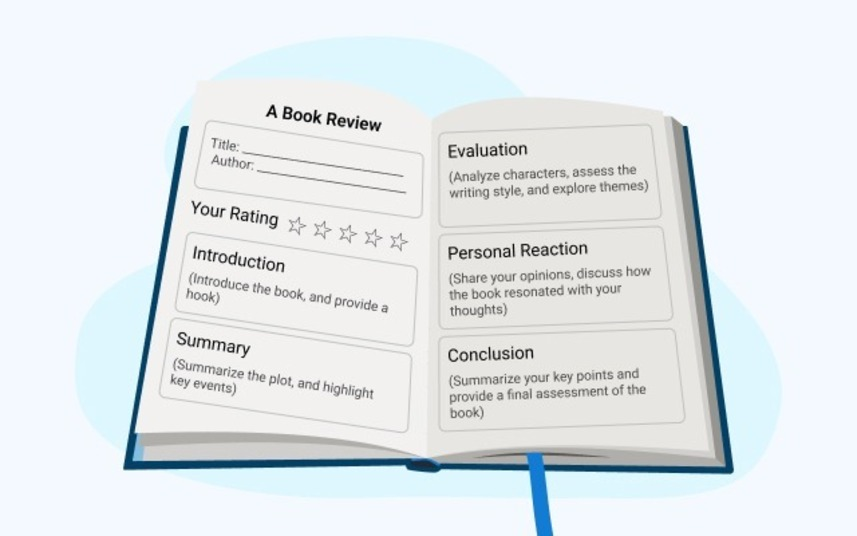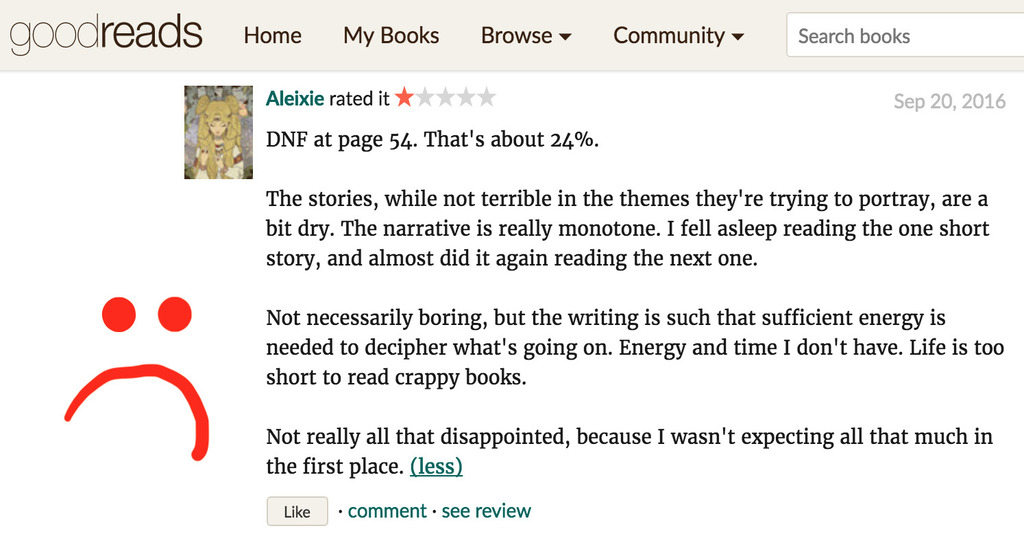Book reviews are very important for students. They improve their problem-solving and analysis abilities. Through reading books, the students can analyze and assess works of literature. This blog post contains book review examples for students. These samples help the students write their reviews, as illustrated in the following examples.
Students will be able to understand how to organize the reviews, talk about the themes, and analyze the styles of writing. They will also learn how to come out and state their opinions in a very assertive manner. Furthermore, This will enhance their reading skills and ways of interpreting literature.

Part 1. Understanding Book Reviews
A book review is essential for readers who want to know more about the book and its contents, what it is about, and whether it is worth reading. It presents a general idea of the book, the story it tells, the characters, how the author writes, and the themes. It offers the readers a much wider understanding of the goal that the author set out to achieve and the book's effect.
In addition, book reviews help evaluate the book, its relevance to culture and society, and the themes and issues discussed in the book. They help create discussions between readers, scholars, and other lovers of literature and play a part in improving literary understanding and critical thinking.
However, one must not forget the fact that book reviews are not only informative but also persuasive because they help the reader make the right choices regarding the books to read. While positive reviews may make the readers desire to read the book, critical reviews help the reader have another angle on the matter. Thus, it can be stated that book reviews are critical tools in the context of reading when introducing new books and initiating a discussion in the blogosphere.
Key Elements of a Book Review
Stakeholders of product review examples for students have identified the following as the key elements: In general, several elements are expected to be included in a book review. Firstly, it enables the readers to have an idea of what the book is all about or the key points in case the readers get bored and forget the initial information given in the book. Following that, the strengths and weaknesses of the book are presented, and then the aspects such as character development, plot and its tempo, author’s tone, and themes are considered. Finally, a book review entails an evaluation or a recommendation, a conclusion on the book, whether good or bad, useful or otherwise, and relevant or irrelevant.
It is always a challenge to write book summary examples for students, especially for the first time; however, there are specific procedures that one has to follow in order to produce the best book review.
Tips for Writing an Effective Book Review
The first thing required when writing a book review is to read a book thoroughly and take notes of the significant points, issues, and emotions. In the first paragraph, you should give a brief description of the book to the readers to give them an impression of what the book is all about without telling the story. After that, give your opinion of the book, including the topics, characters, author’s approach, and any other aspect you observed as a reader. Finally, state your view on whether you find the book worth reading, the advantages and disadvantages of the book, and how the readers can benefit from the book. In writing the review, the following should be observed; do not use big words and long sentences, where possible, use examples to support the points made, and the tone of the review should be neutral.
- 100% secure
- 100% secure
- 100% secure
Part 2. Sample Book Review for Students

This section will expose the reader to a sample book review to understand how a text can be appropriately analyzed and criticized. Students will learn about the main components of an influential book review through this example.
Introduction:
Harper Lee’s ‘To Kill a Mockingbird’ is one of the most well-known and highly appreciated novels in American literature that focuses on the issues of racism, the process of becoming an ethical person, and the theme of the loss of innocence in the context of the Southern States of America. The story is told by Scout Finch, a young girl who grows up with the help of her father, who stands for a black man accused of rape.
Plot, Characters, and Themes Analysis:
The central conflict of “To Kill a Mockingbird” is based on the story of Tom Robinson, a black man who is accused of raping a white woman. Thus, the readers see the struggle of racism, social inequality, and power relations in the town through Scout. The characters in the novel are well described and well rounded, starting from Atticus Finch, who is wise and compassionate, to Scout, who is innocent but curious, and Boo Radley, who is mysterious; all play a part in the novel's themes of moral and ethical issues.
It is important to note that the issues of race, ethical behavior, and the loss of childhood are rather significant for the story. Harper Lee subtly incorporates these themes into the story, making the reader think about society's issues and the moral aspects of life.
Strengths and Weaknesses Evaluation:
The significant advantage of To Kill a Mockingbird is that it is a universal book that raises important questions and encourages people to think about contemporary society. The plot is presented excitingly, and the characters are easily connected, making the novel suitable for young readers. However, there are those who claim that race relations are depicted in a very basic or even romanticized manner in some ways.
Target Audience and Recommendation:
It is highly advisable for high school and college students to read “To Kill a Mockingbird” and for people interested in literature with deep philosophical meaning and powerful emotions. The themes of the novel, as well as the historical background, make it an essential and meaningful book that will be interesting to any reader as it reveals the essence of people, their ability to feel compassion, and the nature of society.
Overall, “To Kill a Mockingbird” is a novel that will always be relevant and provoke people to think, discuss the things they do not want to discuss, fight for justice, be compassionate, and be ethical.
- 100% secure
- 100% secure
- 100% secure
Part 3. Book Review Examples for Students

Here, you will find several book review samples that will explain to you how to write a book review for different genres and styles of books. The examples will help you improve your review writing skills because they are filled with real-life information.
Positive Reviews Across Genres
Positive book reviews aim to describe the aspects of the literary works that can be regarded as the author’s strengths and the merits of the work. For instance, a positive review of F. Scott Fitzgerald’s work, “The Great Gatsby,” describes the work as having strong descriptions, exciting characters such as Jay Gatsby and Daisy Buchanan, and themes based on the American dream in the backdrop of the Jazz Age. This review may also talk about the aspects of symbolism, characters, and narration that make the book still relevant to this generation.
Negative book reviews

Negative book reviews entail a critique of the literary piece and center on the poor work done and the weakness of the story, characters, or writing style. For example, a negative critique of Stephenie Meyer’s “Twilight” might state that there is no developed character, it is a hackneyed love story, and the book is not very profound even though it is a bestseller. These reviews are intended to describe what could be improved or what the reader regards as a weakness.
In all the genres, the negative reviews assist the readers to have a balanced view of the book, the strengths and the weaknesses. They serve as feedback to authors and publishers of books, which show parts that may be subject to further review. Also, negative reviews are useful in literary discourses because it encourage the readers to think critically and be wise when choosing the places to frequent.
It is therefore important to understand that negative book reviews, as much as they are perceived to be a bane to the author, are, in fact, very useful to the reader and their reading. They aid the love of literature and encourage the readers to make sound judgments about the books, their values, and their verdicts.
Diverse Perspectives and Themes
Different book reviews in various categories and approaches show different perspectives and topics. An example of a positive review of Suzanne Collins’s ‘The Hunger Games’ could be based on such aspects as the plot, construction of the fictional world, and the key themes of survival, revolt, and social critique. On the other hand, a negative critique of E. L. James ‘Fifty Shades of Grey might include such elements as monotonous writing, controversy of the messages conveyed, and two-dimensional characters despite the book’s success.
Analysis of Writing Techniques
Book reviews also explain the various figures of speech employed by the authors in the course of conveying their messages to the readers. The positive reviews may contain aspects such as the language used, the dialogues, the setting, and the characters as the features that make a book more interesting. Criticism may relate to such issues as the beat, the lack of flow, the inconsistency of the characters, or clichés that prevent the story from being touching.
Recommendations and Insights
Book reviews are helpful gadgets, which give the reader information and guidelines that help in choosing a book among the many existing ones. These reviews assist the readers to have an impression of the entire book and the content, the strengths, the weaknesses, the information that the author is trying to pass, and the style of writing. It helps the readers know which books they need to read next and how to approach the process of reading literary books.
Furthermore, book reviews are helpful for readers to have an idea of what the book is about and how it is written and whether the reader should read the book or not. Consequently, with the help of the reviews, readers can have an idea about how much a specific book may help them in the process of their self-improvement and how much it may enrich their experience in reading.
In addition, book reviews allow readers to have a sense of belonging, and as such, they can express what they think about certain books and even recommend some of them to other readers. The sharing of ideas and views enhances the understanding of literature, encourages debates on the literary pieces, and enhances the love for different genres of literature and writers.
Therefore, book reviews are a very important element of readers’ literary lives as they give recommendations, valuable insights, and criticisms that can enrich the readers’ voyages and make their literary lives more fulfilling. They facilitate the readers to come up with right decisions and engage with the texts in a constructive way, which enhances their literary abilities and understanding of texts.
- 100% secure
- 100% secure
- 100% secure
Part 4. Conclusion
Book reviews are very vital in the development of critical assessment and understanding among the readers. Similarly, they assist in the cultivation of the analysis and the capacity to appreciate the literature. In this case, students can understand the story better when they dissect the book through the plot, characters, themes, and the style of writing used by the author.
However, writing reviews is useful in enhancing brief and efficient language skills. Here, the students are also able to share ideas with other readers in a community of practice. Besides, through book reviews, students learn about other opinions, which contributes to their tolerance and acceptance of others. Hence, the reading and writing of reviews assist students in occupying themselves in the literary world.
Therefore, the students’ engagement assists them in developing confidence in their analytical abilities and critical thinking. Last of all, this process contributes to the formation of the reading habit and the desire to learn throughout the lifetime.


